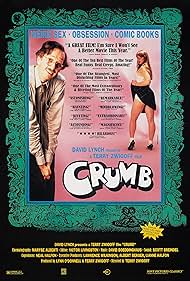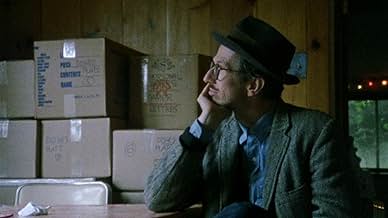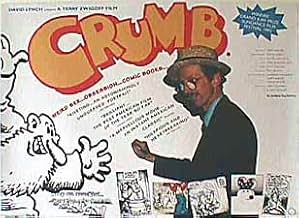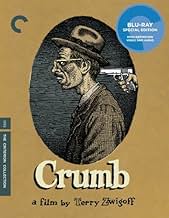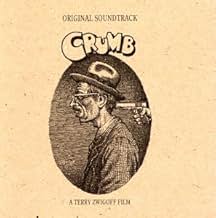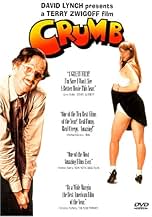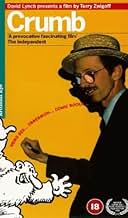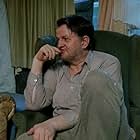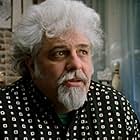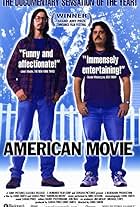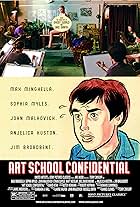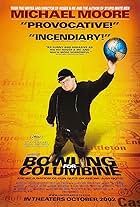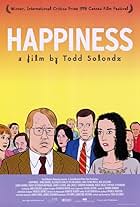An intimate portrait of controversial cartoonist Robert Crumb and his traumatized family.An intimate portrait of controversial cartoonist Robert Crumb and his traumatized family.An intimate portrait of controversial cartoonist Robert Crumb and his traumatized family.
- Awards
- 18 wins & 6 nominations
- Self
- (as Aline Crumb)
- Self
- (as Dana Crumb)
Storyline
Did you know
- TriviaWhen he was trying to raise funds for the film, Terry Zwigoff encountered Terry Gilliam whom he knew had worked with Robert Crumb in the late 60s. Approaching Gilliam, Zwigoff asked for some help with the budget. Gilliam reached into his pocket, handed over a nickel and then walked away.
- Goofs"San Francisco" is misspelled in the closing titles. The caption reads: "Max Crumb still lives in San Francicsco".
- Quotes
Robert Crumb: Jesus. Fuckin' raging, epithet music comin' out of every car, every store, every person's head. They don't have noisy radios on, they got earphones; like, "motherfuckin', cocksuckin', son of a bitch. Lot of aggression. Lot of anger, lot of rage. Everybody walks around, they're walkin' advertisements. They've got advertisements on their clothes, you know? Walking around with "Adidas" written across their chests, '49'ers on their hats. Jesus. It's pathetic. It's pitiful. The whole cultures' one unified field of bought-sold-market researched everything, you know. It used to be that people fermented their own culture, you know? It took hundreds of years, and it evolved over time. And that's gone in America. People now don't even have any concept that there ever was a culture outside of this thing that's created to make money. Whatever's the biggest, latest thing, they're into it. You just get disgusted after a while with humanity for not having more, kind of like, intellectual curiosity about what's behind all this jive bullshit.
Everyone seems to come away from the movie with an idea that Robert is spared the obvious insanity of his two brothers because of his art. But I see it differently(hence the title of this comment). Even Robert admits that his brother, Charles, was a better cartoonist. Another way to view Robert's "success" and his brothers' descent into "crazy" is fame. Crumb was an involuntary icon of the 60's. Where would Robert be today if he wasn't recognized and rewarded in the 60's? If Zap comix had turned him away for his misogynist and racist comics, would he have had the subsequent female relationships that seemed to normalize his existence? What would his fantasizing over a high school yearbook and habitual masturbation meant if he was an unknown sharing a room with his brother at Mom's house?
When I watch this movie, I am always mindful that Robert's obvious genius would be lost were it not for his luck at being discovered. I suppose that is an obvious statement but, in Crumb's case, fame has managed to gloss over many unacceptable characteristics. And, maybe, that's not such a bad thing.
The film lightly touches on Crumb's relationship with his son and daughter. For some reason, Crumb's bumbling attempts at affection with his children were a bit disturbing. Or maybe its just that Crumb's fixation with wrestling and piggyback riding lingers in your mind when he hugs his daughter.
On a lighter note, I've noticed that no one has mentioned the soundtrack of this movie. Designed to be in keeping with Robert's love of old American music, the music helps to define the subject. I wonder why Zwigoff made no mention of Crumb's Cheap Suit Serenaders band.
Crumb comments against the crass commercialism of America. And, yet, I first saw this movie at a theater in Baltimore where the lobby was chock full of Crumb comic picture cards, mugs, etc.
Crumb, the movie, is a crazy world of contradictions and well worth the ride.
- How long is Crumb?Powered by Alexa
Details
Box office
- Gross US & Canada
- $3,041,083
- Opening weekend US & Canada
- $19,859
- Apr 23, 1995
- Gross worldwide
- $3,041,083
Contribute to this page

